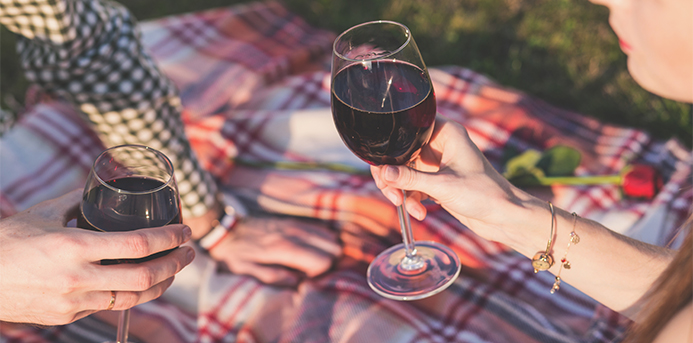It’s pretty common knowledge among wine drinkers that red wine is good for you. And yes, we may have already been using that excuse to drink a little more. But listen up, a new reason for our favorite after-work activity is here—and it’s pretty incredible.
According to Yale neuroscientist Gordon Shepherd, the flavor of wine actually engages our brain more than any other human behavior. That’s right—our brain is stimulated more by wine than music or, get this, math. (I mean, if our brains prefer wine to math, who are we to argue?)
Shepherd’s new book, “Neuroenology: How the Brain Creates the Taste of Wine,” expands on the discovery that the brain actually creates the taste of wine. It is this process of creating that engages the brain more than anything else. The book dives into the process in detail, from the movements of wine through the mouth, to the effect of its appearance, smell and how it actually feels in the mouth. It also discusses the way our brain creates the memory of wine and how “language is used to identify and imprint wine characteristics.”
The book also includes practical tips for a scientifically informed wine tasting, so if you’re looking to get even more out of your next sampling, this could be the way! Shepherd explained to NPR, however, that even simple wine tastings are more complicated than they seem.
“You don’t just put wine in your mouth and leave it there. You move it about and then swallow it, which is a very complex motor act,” he said. “If you search on YouTube for anyone doing serious wine tasting, they are working it with their mouths. It’s a very active process.”
It is also interesting to note that two people might experience wine differently depending on a number of factors. The amount of saliva a person has affects their perception of wine, as well as “… the time of day. And whether or not they’re depressed,” Shepherd said. “If we’re talking about smell, we have about 350 different kinds of olfactory receptors. They are not the same between individuals—yours will be different than mine. And they’re not always the same over the course of months or years. As the cells turn over, they can change.”
Shepherd says about 90 percent will be the same to everyone, but there is probably a 10 percent difference among wine drinkers. But that’s part of the fun, he says—“comparing your pleasure.” It really is more complicated than it seems!
Shepherd doesn’t recommend any specific wine brands, but says he sticks to around $10 to $12 per bottle for table wine. To find cheap, but good, wine, check out this list of the best wines under $15.
Written by Kaitlin Gates for Simplemost.

